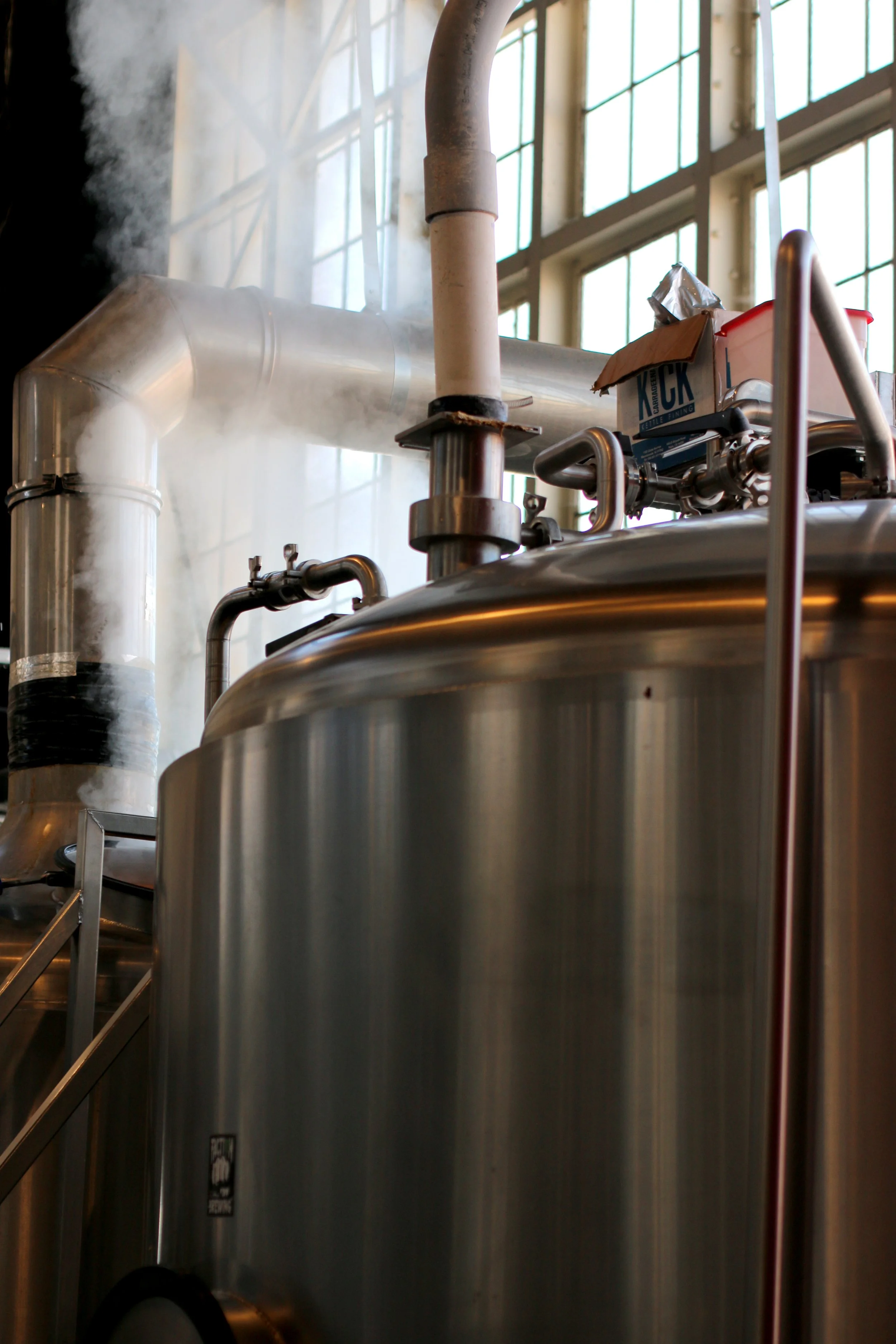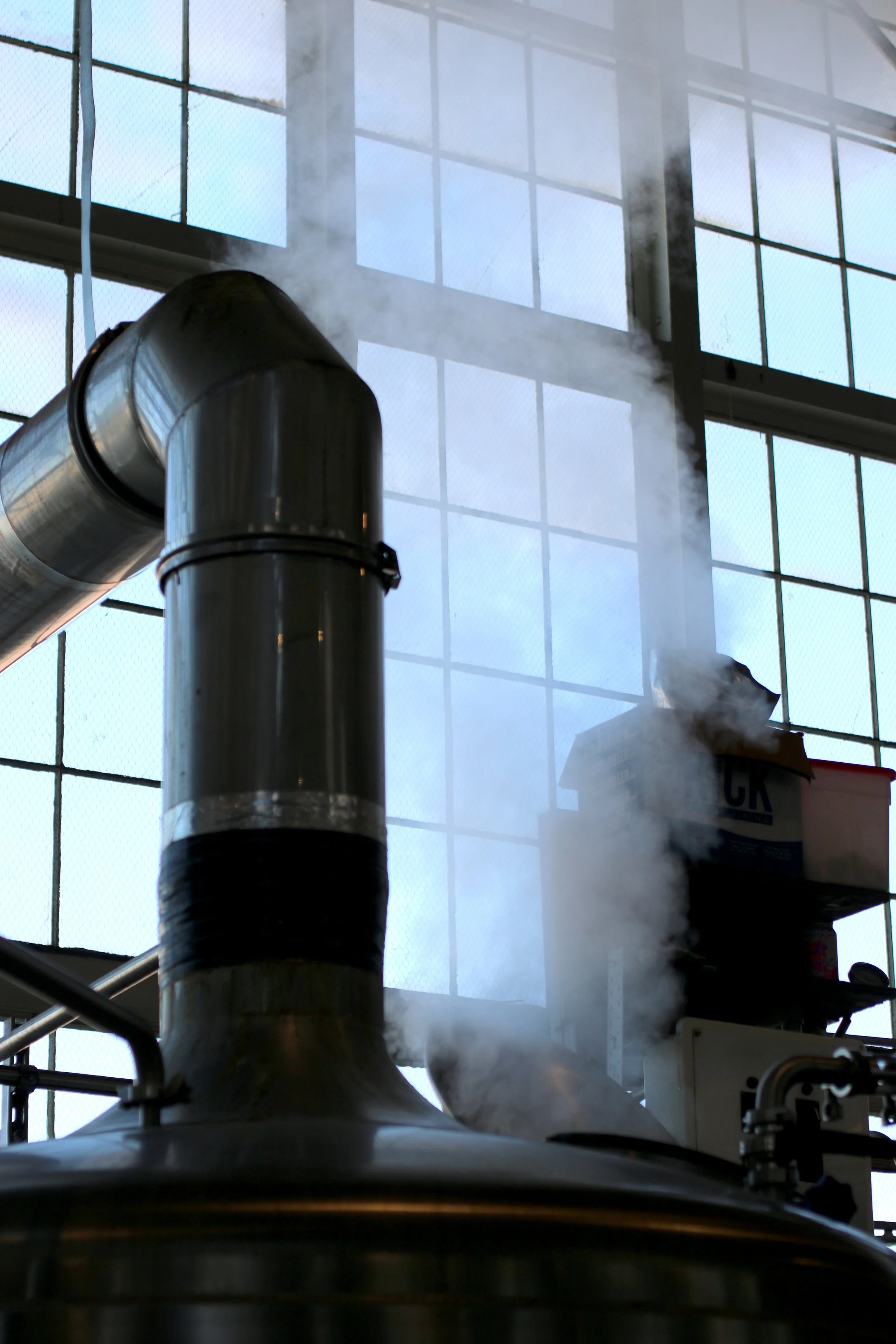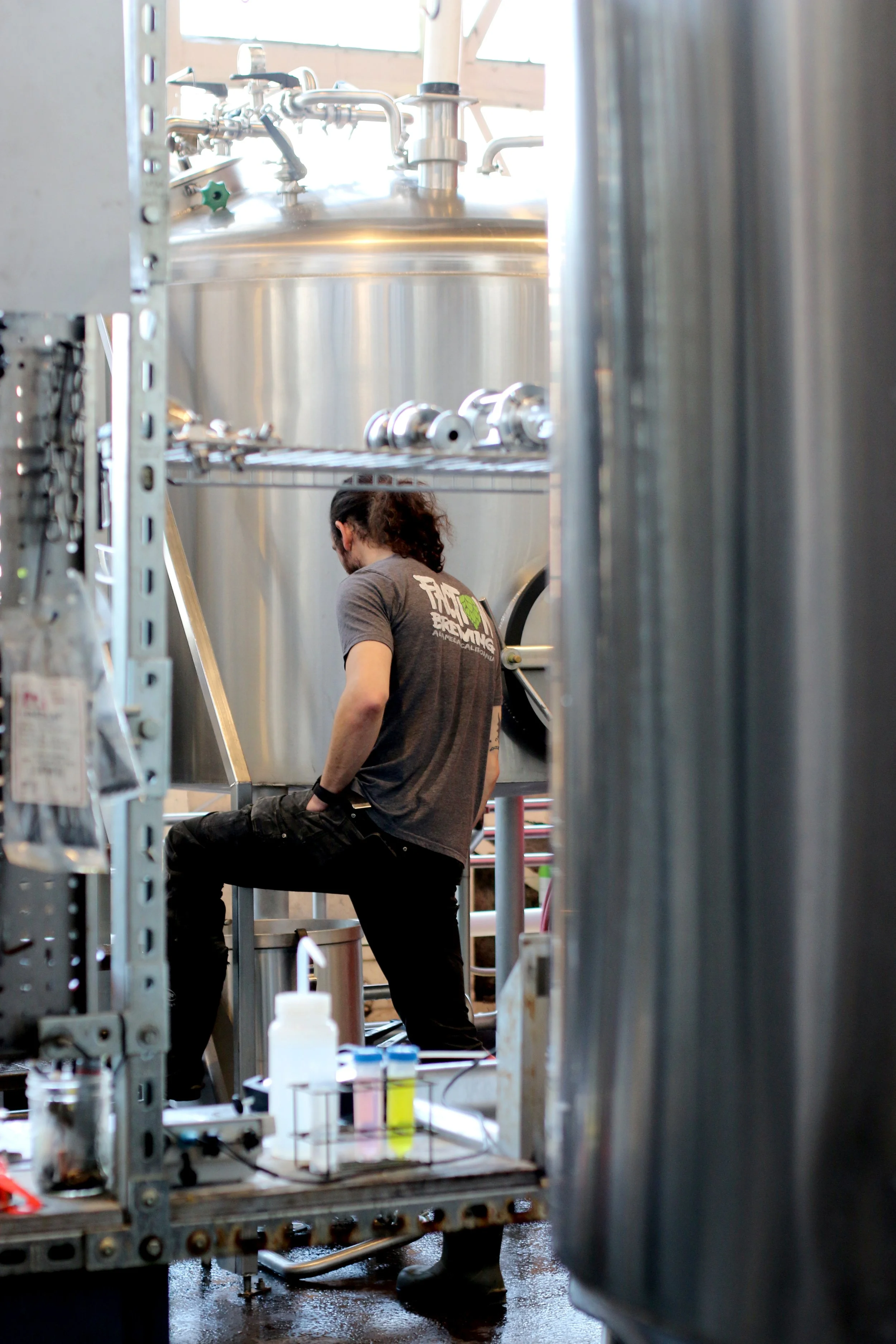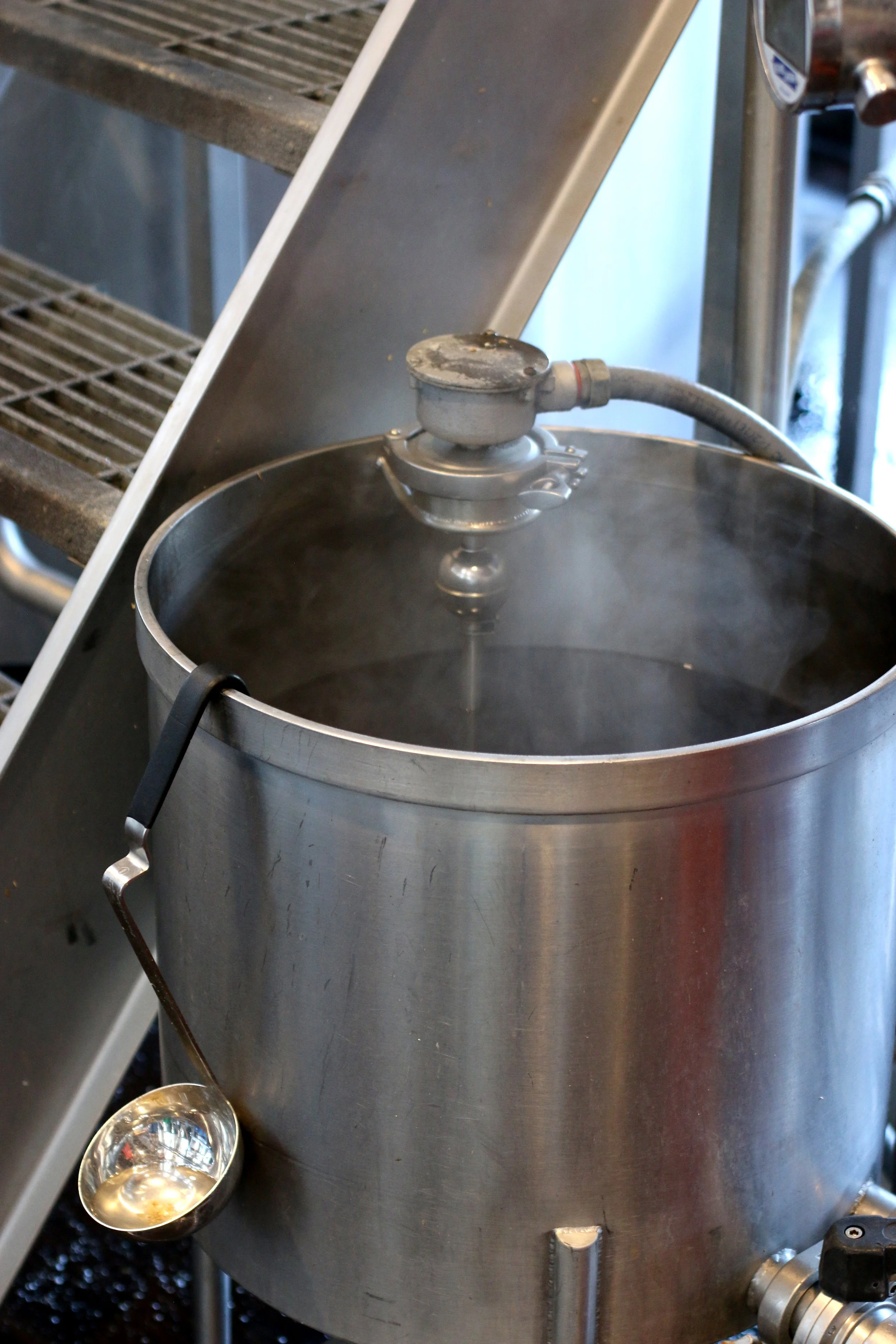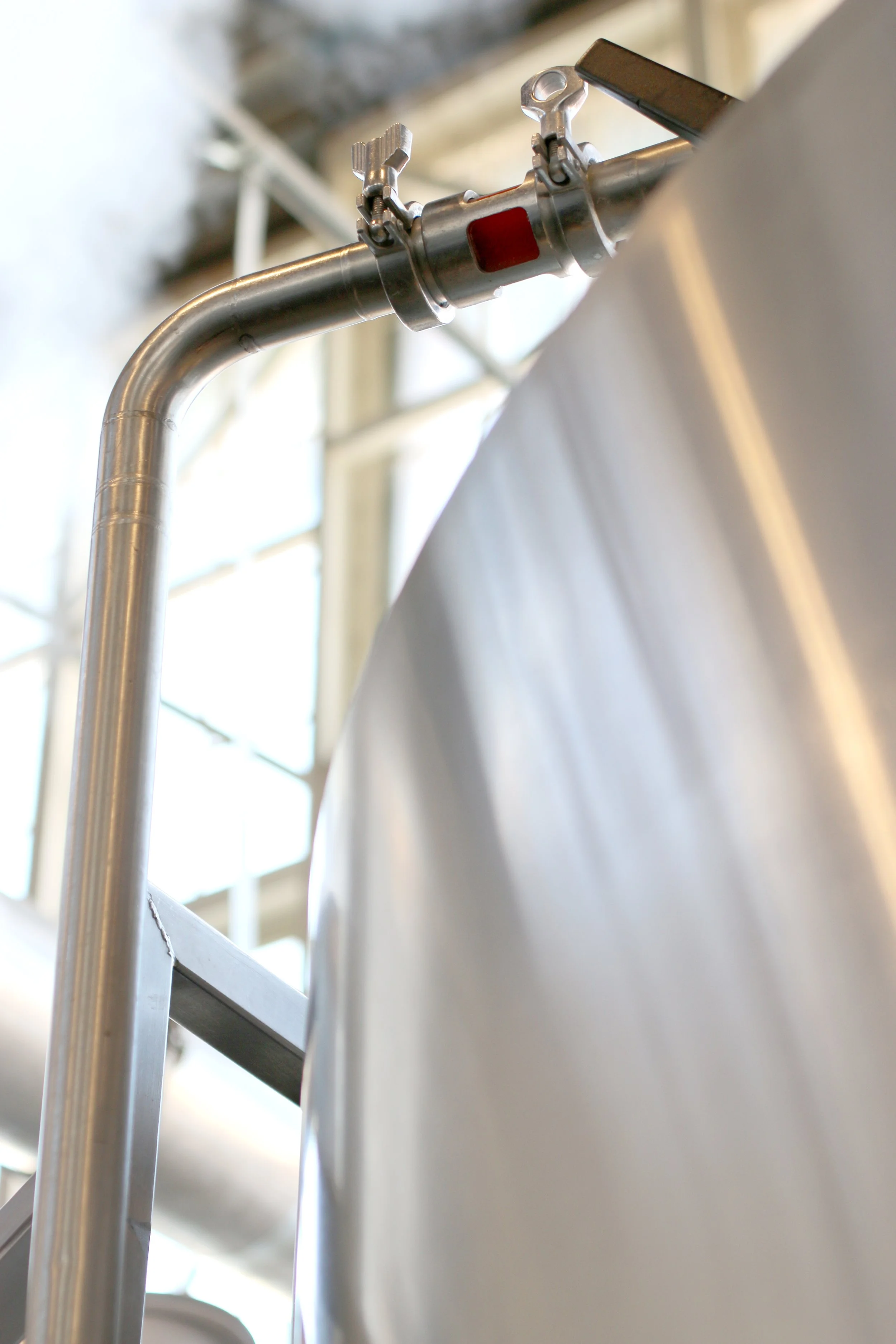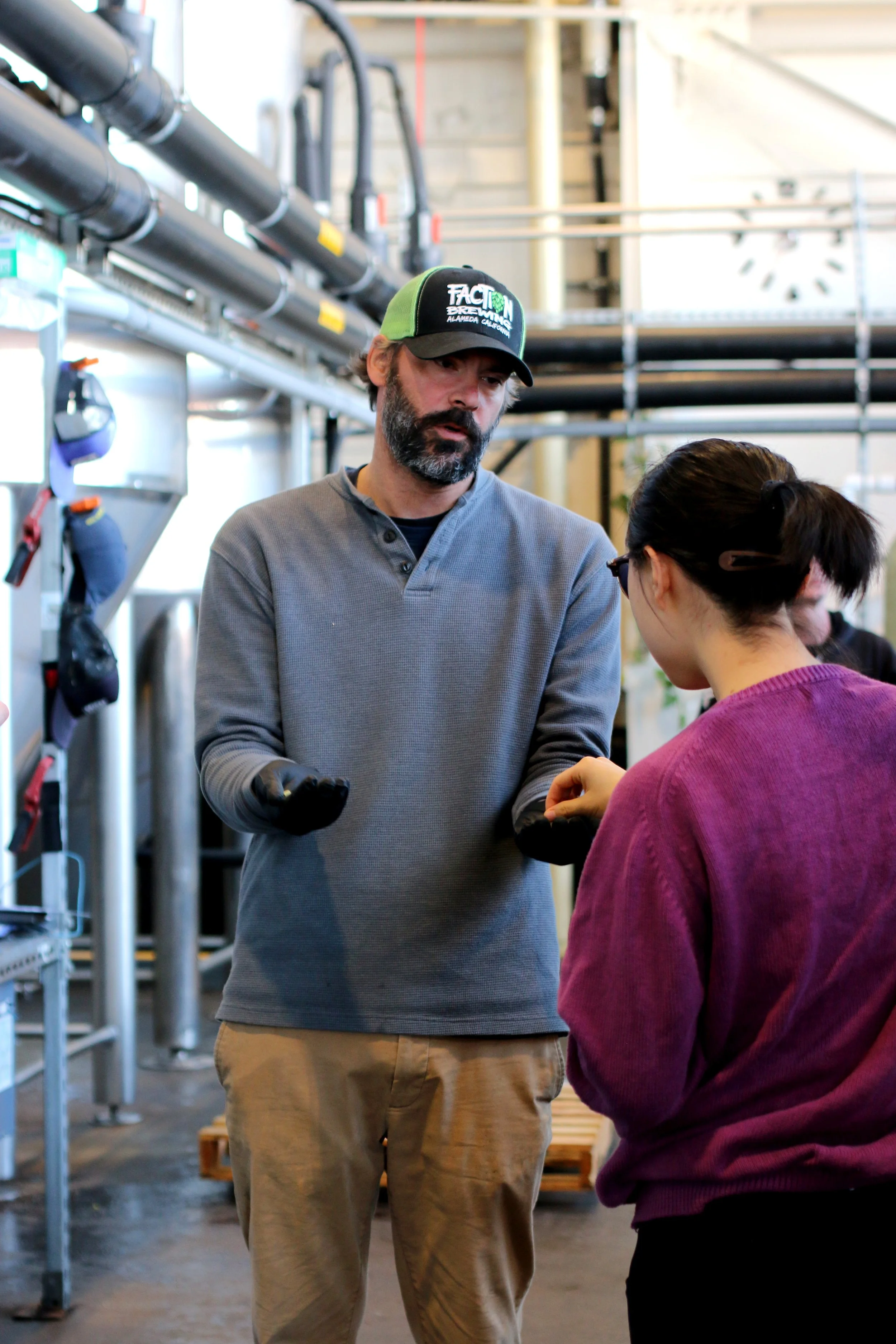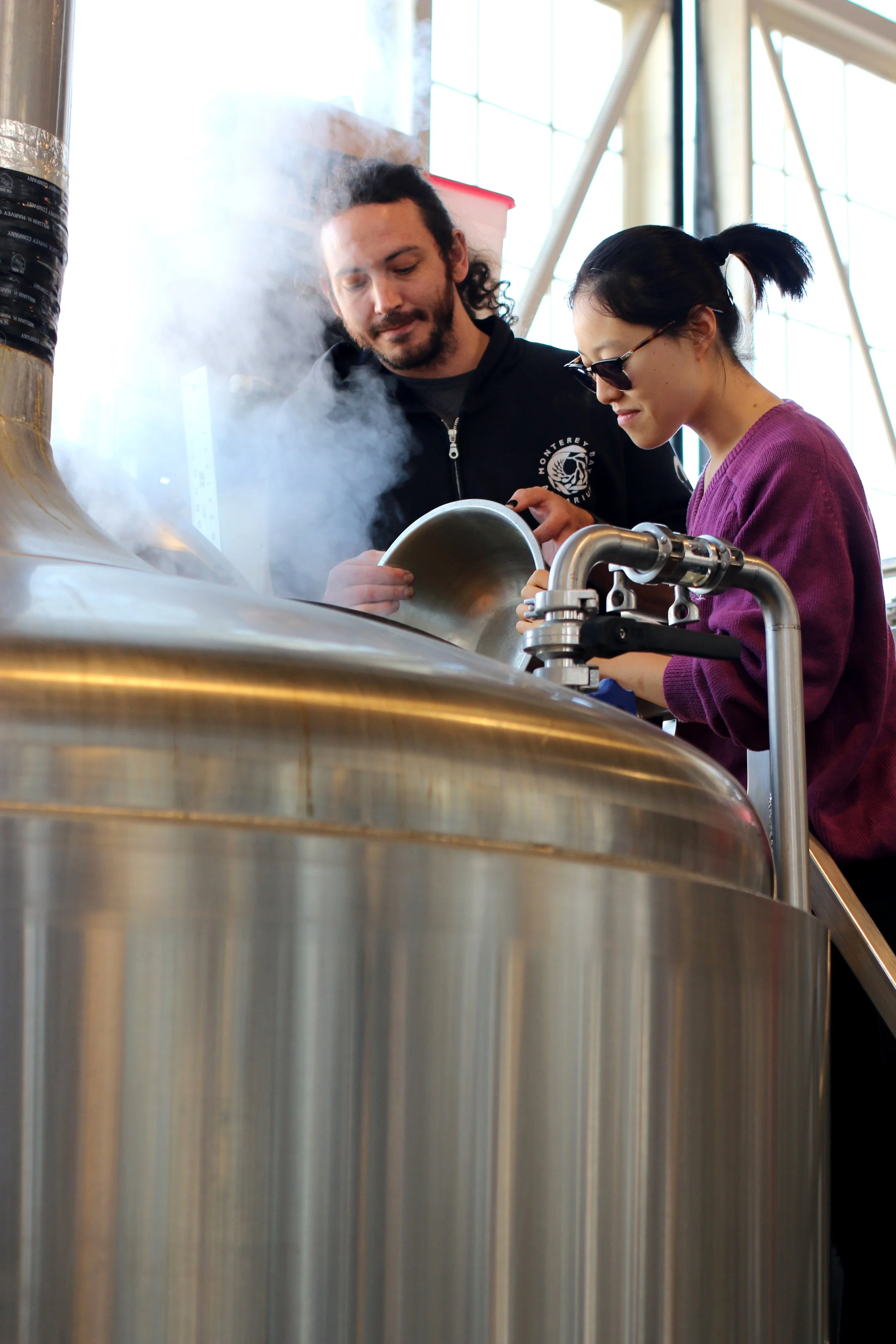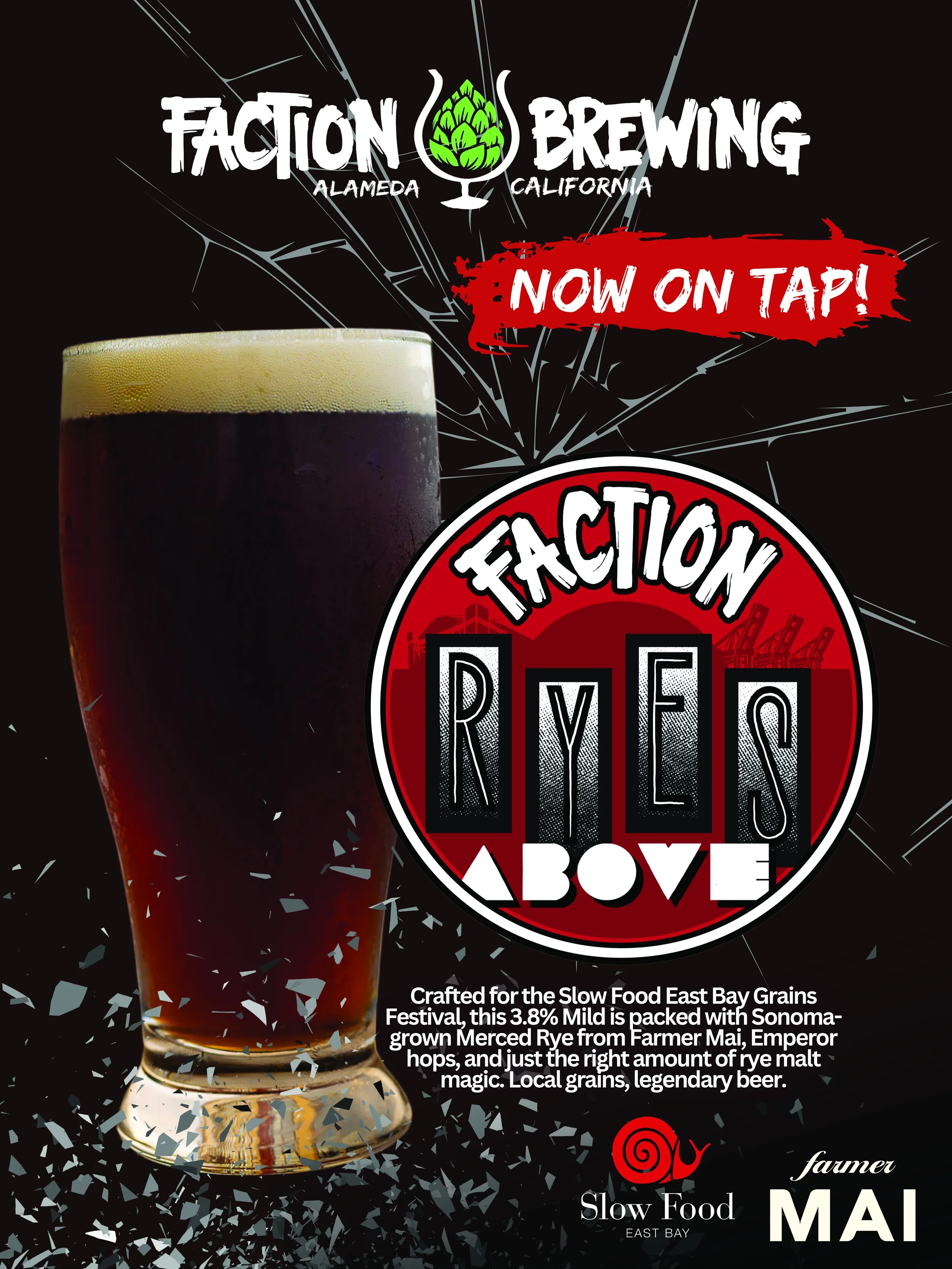Faction Brewing & Farmer Mai Beer Collaboration
(no longer available on tap)
Inspired by Slow Food USA’s Plant A Seed campaign and our 2022 Bean Feed, we gathered in November of 2024 for a festival focused on heirloom grains. A mash-up of sorts with our Cultural Food Traditions Project, the 2024 Grains Festival featured 7 chefs who each prepared a dish using an heirloom grain in a culturally relevant application. Along with local farmers and producers, innovators, activists and enthusiasts, we gathered at St. George Spirits on Alameda Point to celebrate all things grains. During the planning process, a new idea was born when Farmer Mai generously offered to provide their bulk grains to any participating producer who wanted to experiment with their heirloom varieties in speciality brew. Alameda Point fixture Faction Brewing agreed to give it a shot!
Faction Brewing was opened by Rodger Davis and Claudia Pamparana in 2013 and has been a staple of the East Bay craft beer scene ever since. Their 20-barrel brewhouse produces a variety of styles, and Rodger ultimately selected an unmalted Merced Rye to go in a special version of their Ryes Above English Mild. One of the unique challenges we faced with this brew project was the malting. While Admiral Maltings is right down the street, coordinating a small-scale malting with specialty grains was a time-intensive element that we couldn’t quite fit into the timeline. So when Faction agreed to work with the unmalted and unmilled grains, we were thrilled. We joined the team in the early morning for their first brew of the day.
A small shed on the far side of the brewhouse sits filled with bags of grains. In the corner, a compact red mill grinds the Merced Rye and pushes it through a pipe across the brewhouse and over to the brew deck. The grains are milled just enough to split the bran so the starches inside are exposed and can easily be converted to sugar in the mash. The Merced Rye only makes up a small portion of the mash but its unmalted characteristics provide a spicy kick that malted grains simply don’t. While the magic is happening in the kettle, head brewer Kyle Manigold lets us sample straight from the mash. The thick brown liquid smells like warm fresh bread, and tastes like it too.
Post-mash, the grains are strained and the liquid is transferred to the boil kettle where Emperor hops are added for flavor and extra bitterness. The brew process itself takes about an hour. When the liquid is ready to be moved to the fermenter, another round of hops are added along with the yeast necessary for fermentation. After a few weeks in the fermenter the brew is ready for the taproom. Spent grains are shared with local farmers as feed for livestock. Organizations like Grainbakers host bread baking classes with spent grains as well.
This collaboration exemplified the power of partnership when it’s fueled by love, passion, and the celebration of local products and the people who make them.



